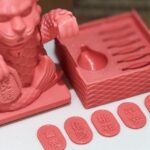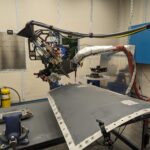Motivated by witnessing his uncle Arjun’s challenges with Parkinson’s disease during mealtimes, Aarrav Anil, a 17-year-old from Bengaluru, India, channeled his passion for robotics into creating an affordable solution.
Aarrav, with a decade-long interest in mechanics, utilized microcontrollers, sensors, motors, and 3D printing to develop a prototype of a smart spoon. The battery-operated utensil’s sensors detect tremors and counteract them to maintain stability. Feedback from the RV College of Physiotherapy, where the spoon is currently undergoing trials, has guided design improvements, including waterproofing, detachability for cleaning, and depth enhancement to hold more food.

Aarrav’s invention was recognized at the World Robot Olympiad in Germany, motivating further development. Although other smart spoons exist in the market, their cost is often prohibitive for many, especially in India. Aarrav’s design aims to be more accessible, estimated at $80. Once trials and validations conclude next year, plans are in place for limited production targeting hospitals.
As Parkinson’s affects over 7 million individuals in India, tools like this offer an improved quality of life. Aarrav’s mission is clear: to provide Parkinson’s patients with a means to maintain their dignity during meals.
Source: theguardian.com
Come and let us know your thoughts on our Facebook, Twitter, and LinkedIn pages, and don’t forget to sign up for our weekly additive manufacturing newsletter to get all the latest stories delivered right to your inbox.










